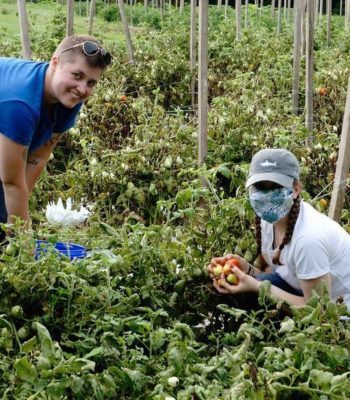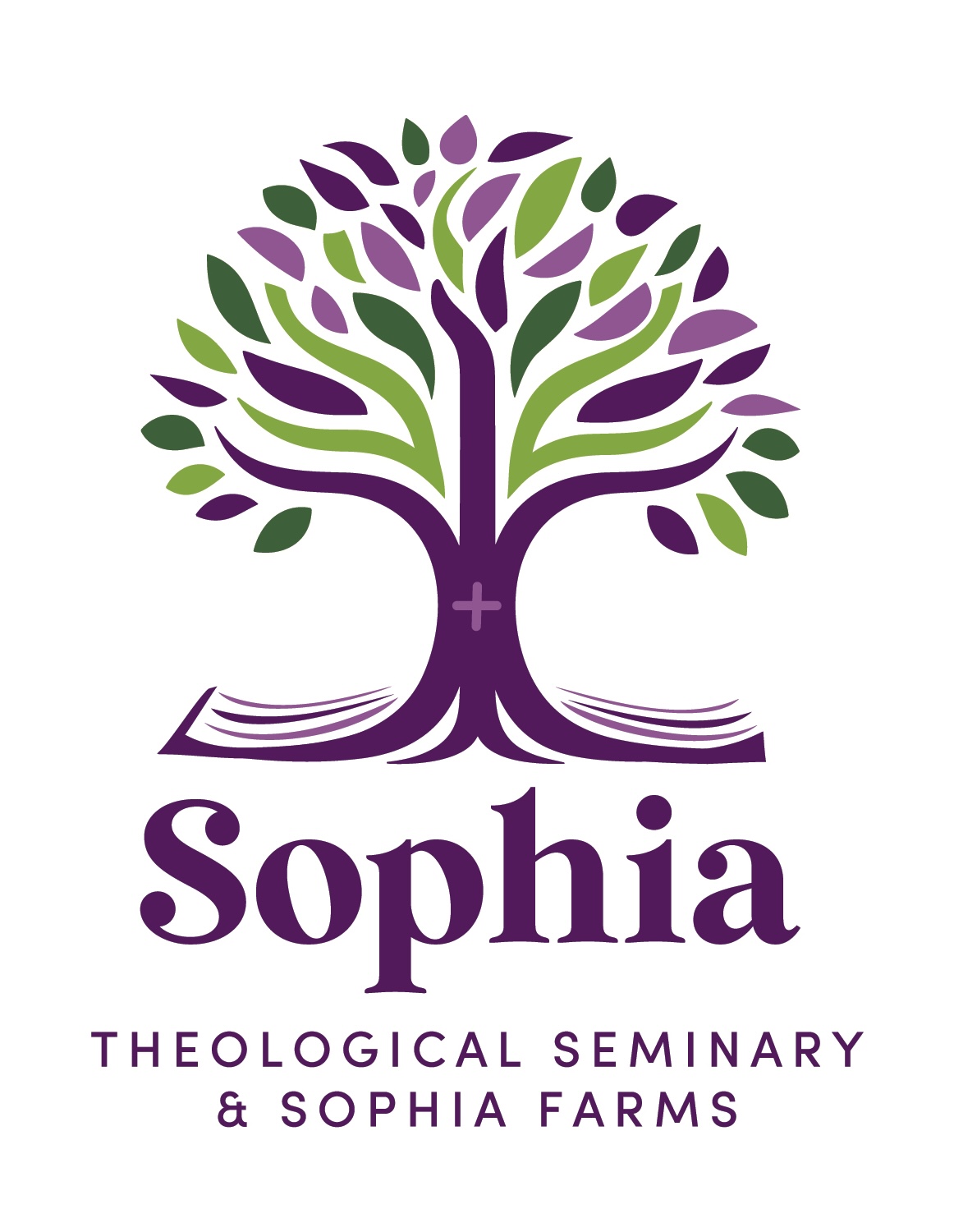Why a Farm?: Farming as the Way of Sophia
 For centuries and across continents, various religious groups have relied upon growing, producing, and selling goods in order to be self-supporting. Beer, cheese, eggs, even fruitcake have sustained the lives of many thriving religious communities.
For centuries and across continents, various religious groups have relied upon growing, producing, and selling goods in order to be self-supporting. Beer, cheese, eggs, even fruitcake have sustained the lives of many thriving religious communities.
Even so, supporting a seminary with a farm is a bold idea. The current economies of agriculture pose significant challenges for anyone intending to realize financial success from crop production. Not unlike other business ventures, a farm requires dedication, sharp minds, marketing savvy, and careful attention to finances; a farm faces additional uncertainty imposed by weather, insects, disease, and other factors that affect a business reliant upon natural systems.
With all of these potential impediments, why choose a farm to support a seminary?
From humanity’s creation, agriculture offers connection to the Divine.
The two accounts of creation in Genesis speak to a highly interrelated world where:
- the ground is indispensable for God’s creative work;
- humans depend on the ground for their sustenance and livelihood; and
- the ground depends on humans for its proper development.
Food connects us to creation and to God. Growing food reminds us that we do not create life.
God directed humans to care for creation.
Genesis 2:15 is one the earliest directives for humankind in Scripture, and that directive is to take care of the earth from which our food comes. Two Hebrew verbs comprise the core of this directive. Abad, often means “to serve,” but is also frequently translated “to till,” with “the ground” (or similar) as its object. This creational instruction puts human activity in service to the nonhuman world. Coming right after the naming of the waters that will soak the earth, Genesis is clear that human care of the earth is critical to the development of creation. Shamar, commonly translated “to protect,” is often translated here “to keep,” describing God’s role for humans in the garden.
The deeper significance of these two verbs is that, rather than being the usual words to describe horticulture, agriculture, and land cultivation, they are repeatedly used to describe human activity in relationship to God: as in, “to serve” or work on behalf of God or to worship God (see Exod 9:1; Ps 22:30-31) and “to keep” the Torah (see Exod 31:13; Deut 6:17). The use of these verbs in this instruction from God places us in a somewhat subordinate relationship to the land on which we live, and demands we pay attention to the needs of the land, as we promote its well-being.
Teaching, learning, labor, and the growth of Sophia are symbiotic.
Physical participation in the care of the soil and the growing of food imparts theological insight as its own classroom, a “learning lab” of the Seminary’s integrated curriculum. This work on the land, in turn, sustains the Seminary’s ability to offer this innovative model of an integrated curriculum.
One of the most expensive and limiting components of a farm, particularly a produce farm, is dependable labor. Students, working alongside faculty and other members of the community, fill this critical need at Sophia Farms, a need that requires the variety of gifts that students bring. Working under the direction of the Farm Steward, who manages the overall Farm operation, labor is needed in areas including:
- soil preparation,
- planting,
- crop tending,
- harvesting,
- produce marketing,
- CSA management, and
- delivery.
Because it is a business based in a biological system, Sophia Farms cannot begin full scale. Time is necessary to come to know and build the Farm’s productivity; expansion is progressive. The first cohort of students will work an initial acreage suitable for the size of that inaugural class. The Farm will increase in size commensurate with future in-coming cohorts until Farm size levels off based on the production acres that can be sustained by a full student body, plus teaching members of the community, approximately 45 people. Estimated labor needs during the growing season are ten hours per week per person.
“Best Practices” are those that demonstrate care for creation and community.
In Virginia, less than fifteen cents of every consumer dollar spent on food actually goes to the farmer. To counter this phenomenon, Sophia Farms intends to use a direct marketing approach through a Community Supported Agriculture (CSA) model to sell its produce. This approach to sales is designed to increase the net gain per unit of production, while still offering competitively priced products that are healthy and carry the story of the Sophia Community with them.
Sophia employs holistic principles of farming that promote health of the land and health of the people alongside agricultural management practices that are environmentally sound, economically viable, socially responsible, and nonexploitative. These are the best practices of Sophia.
Sophia Farms views local partnerships as critical to success, counting among these:
- churches and other ministry organizations that partner in aspects of both the Seminary and the Farms,
- students who bring a fresh work ethic and passion for God’s creation,
- academic partners in Virginia’s land grant universities, particularly through Virginia Cooperative Extension, and
- hosts of groups and individuals longing for the re-imagined community Sophia fosters.
